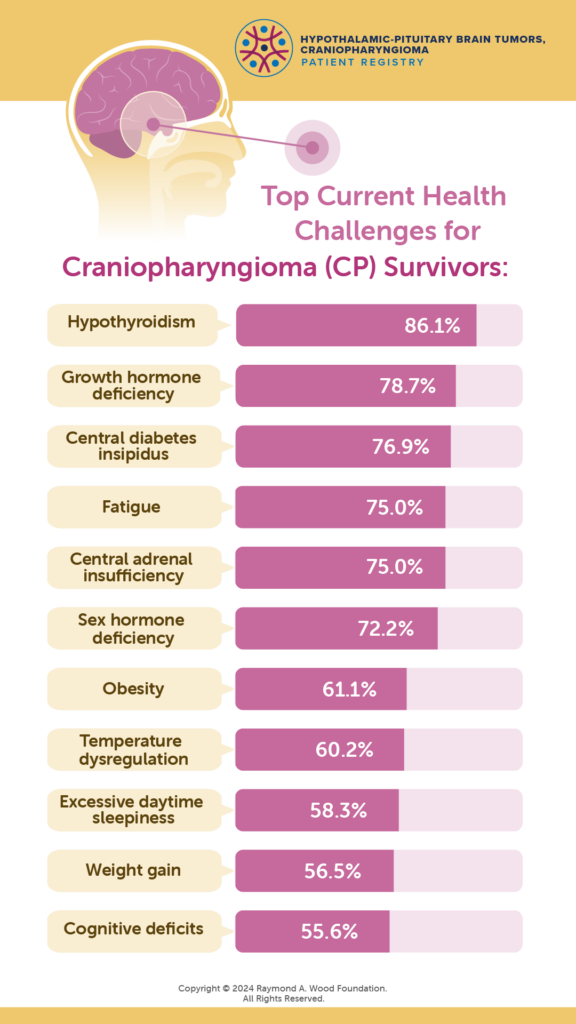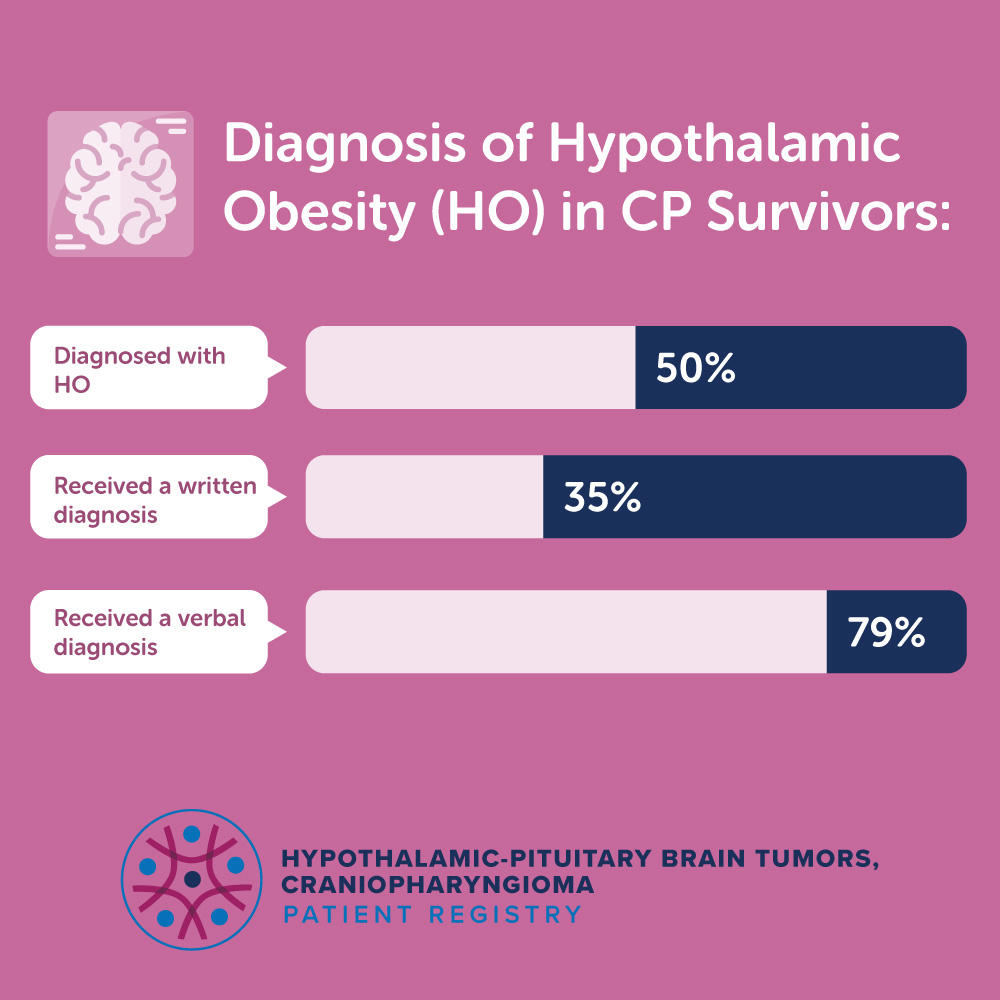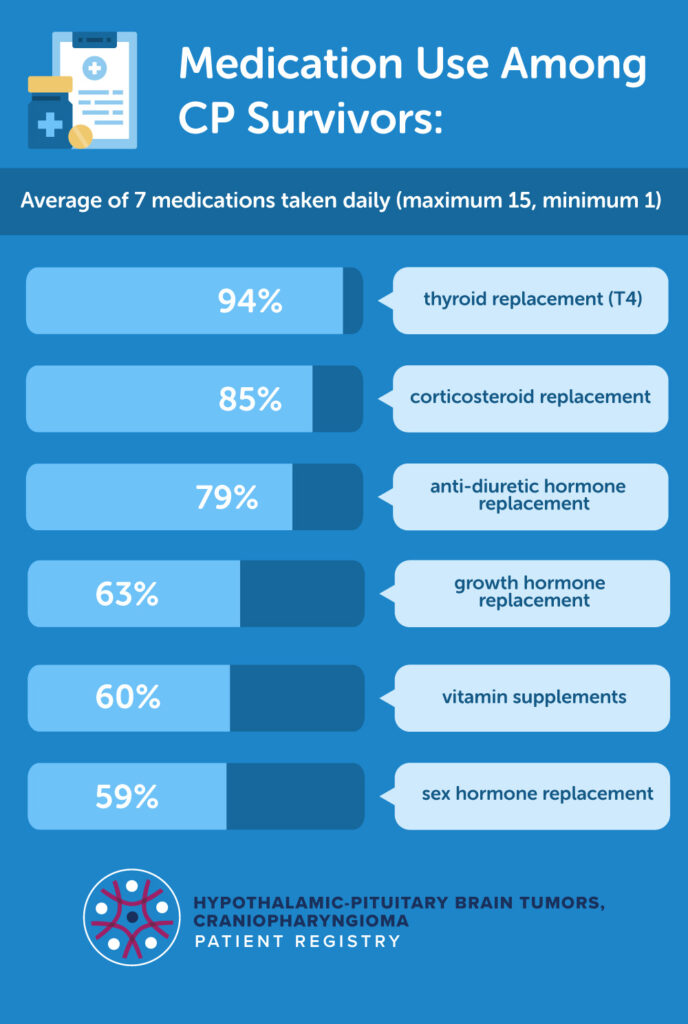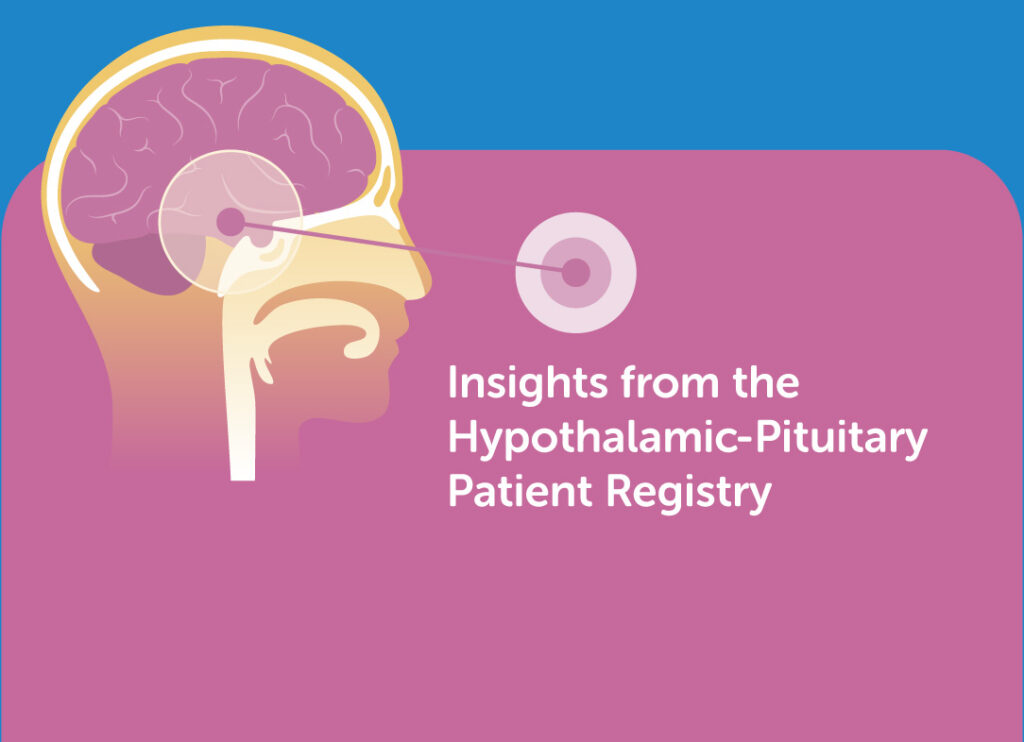New Insights from the Hypothalamic-Pituitary Brain Tumor Patient Registry
Craniopharyngioma (CP) survivors face a range of complex health issues that often continue long after treatment. At the Raymond A. Wood Foundation, we are committed to improving the lives of these survivors by collecting critical data through our patient registry. This data offers valuable insights into the health challenges of craniopharyngioma survivors and provides a foundation for much-needed research into treatments and interventions. Here are some key findings from our recent registry surveys, which reflect the experiences of the CP survivor community.
Top Current Health Challenges for CP Survivors
Out of 108 craniopharyngioma survivors who responded to the health challenges survey, the majority reported facing ongoing struggles with a wide range of conditions:
- Hypothyroidism: 86.1%
- Growth hormone deficiency: 78.7%
- Central diabetes insipidus: 76.9%
- Fatigue: 75.0%
- Central adrenal insufficiency: 75.0%
- Sex hormone deficiency: 72.2%
- Obesity: 61.1%
- Abnormal temperature regulation: 60.2%
- Excessive daytime sleepiness: 58.3%
- Weight gain: 56.5%
- Cognitive deficits: 55.6%
These data points paint a clear picture of the burden CP survivors carry on a daily basis. The most prevalent issues, such as hypothyroidism, growth hormone deficiency, and central diabetes insipidus, are directly linked to the tumor’s impact on the hypothalamic-pituitary axis. Beyond hormonal imbalances, survivors struggle with fatigue, cognitive deficits, and weight-related issues, often making day-to-day life a challenge.

Hypothalamic Obesity (HO) and its Diagnosis
One of the most challenging conditions craniopharyngioma survivors face is hypothalamic obesity (HO), a metabolic disorder often caused by damage to the hypothalamus during surgery or treatment. According to our registry data, 50% of the 100 CP survivors surveyed reported being diagnosed with hypothalamic obesity. Another 36% said they had not been diagnosed, while 11% were unsure of their diagnosis.
Interestingly, only 35% of those diagnosed with HO reported receiving a formal, written diagnosis, while the majority—79%—said they received a verbal diagnosis. This gap in formal documentation is significant, as it can affect the quality and continuity of care survivors receive.

The Medication Burden of CP Survivors
Managing these health challenges often requires craniopharyngioma survivors to take multiple medications on an ongoing basis. According to our survey of 82 participants:
- 94% are taking thyroid replacement (T4)
- 85% are on corticosteroid replacement
- 79% take anti-diuretic hormone replacement
- 63% are on growth hormone replacement
- 60% take vitamin supplements
- 59% are on sex hormone replacement
On average, survivors are managing seven medications daily, with some taking as many as 15 medications to manage their conditions. This medication burden highlights the complexity of their health needs and the importance of comprehensive, coordinated care.

Why This Data Matters
The insights gained from our patient registry are not just numbers—they represent the lived experiences of survivors in our community. By understanding the most common health challenges and the burden of ongoing treatment, we can advocate for better care, more targeted research, and improved treatment protocols that address the unique needs of craniopharyngioma survivors.
We need your help to keep building this data. Each person’s story adds a crucial piece to the puzzle. When you participate in the registry, you not only help paint a clearer picture of what CP survivors go through but also contribute to research that could lead to better treatments and outcomes in
How You Can Help
If you are a craniopharyngioma survivor or a caregiver, we invite you to join our patient registry. Your experiences matter, and by contributing your data, you are helping to shape the future of care for CP survivors. Together, we can make a difference.
Let’s keep the conversation going and ensure that every story is told.

